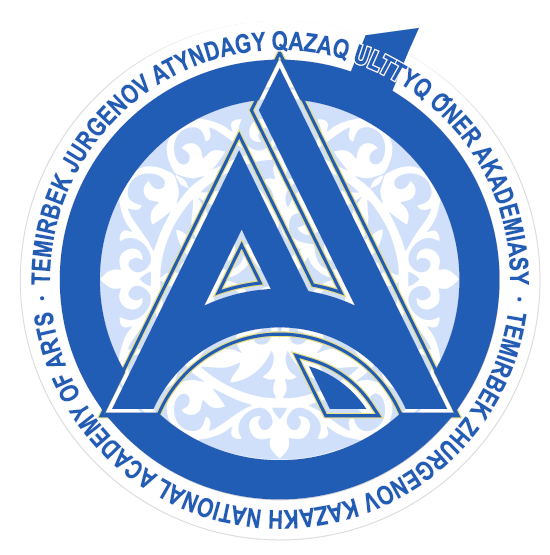Политика единения в танце: аффективная стойкость соматической коллективности в условиях постфордизма
DOI:
https://doi.org/10.47940/cajas.v6i4.495Аннотация
Исследования последних десяти лет в области танца привели к появлению ряда работ, которые вызывают необходимость в теоретизации радикального потенциала танца как площадки для политической активности в контексте глобальных, социальных и экономических кризисов. Автор как практик, преподаватель и теоретик танца и перформанса, работающий в британском университете, заинтересован в изучении возможностей соматики с целью противостоять утилитарному включению соматических принципов в контекст неолиберализма в условиях постфордизма. Настоящее исследование построено на основе предыдущих теоретических обоснований автором статьи практик совместной работы с различными междисциплинарными точками зрения, включая философскую, политическуюи перформативную. В статье соматика выступает в качестве общепринятого термина, чтобыспособствовать обсуждению практик, относящихся к современному танцевальному искусству, в том числе протестам, танцпрогулкам, флешмобам и хореографическим исследованиям перформативных участий. Несмотря на то, что эти практики не получили широкого признания в качестве соматических практик, тем не менее они действуют на соматическом уровне и указывают на постоянно меняющиеся отношения между индивидом, коллективом и социальной средой. Рассматривая совокупность теоретических идей, касающихся взаимосвязи между развитием соматики и усилением культурного капитализма в современном западном обществе, автор стремится теоретизировать соматику как критическую и политическую практику коллективных форм бытия и сотрудничества. В статье, опираясь на примеры коллективного воплощения (исполнения танца), автор подчеркивает политизацию соматических практик, поскольку она связана с идеями аффекта, этики и времени. Предполагается, что воплощенныевыражения коллективности в виде политизированной соматики могут разработать действенную тактику для противодействия тому, что можно называть миметическим феноменом междутанцевальными практиками и капитализмом. Вдобавок надо отметить, что ситуация только усугубилась пандемией COVID 19. Автором предлагается концепция соматическойколлективности как способ описания критического потенциала коллективного воплощения через расширенное поле танцевальных практик.Ключевые слова:
соматика, коллективность, сплоченность, этика, аффект, эмоция, постфордизмСкачивания
Библиографические ссылки
Ahmed, Sara. “Feminist Killjoy (And other Willful Subjects).” The Scholar and Feminist Online, vol. 8, no. 3, 2010, http://sfonline.barnard.edu/polyphonic/print_ahmed.htm. Accessed 24 February 2018.
Berardi Bifo, Franco. “Automation and Infinity of Language: Poetry Versus Financial Semiocapital.” Rehearsing Collectivity : Choreography Beyond Dance, edited by Guidi, Emanuele, et al. Berlin: Argon, 2012.
Burt, Ramsay. Ungoverning Dance: Contemporary European Theatre Dance and the Commons. New York, Oxford University Press, 2017.
Claid, Emilyn. “I Am Because You Are.” Journal of Dance & Somatic Practices, vol. 8, no. 2, 2016, pp. 115–128. DOI: 10.1386/jdsp.8.2.115_1.
Clough, Patricia Ticineto, and Jean Halley (editors). The Affective Turn: Theorising the Social. Durham, Duke University Press, 2007.
Colin, Noyale, and Stefanie Sachsenmaier (editors). Collaboration in Performance Practice: Premises, Workings and Failures. London, Palgrave Macmillan, 2016.
Colin, Noyale. “Becoming Plural: the Distribution of the Self in Collaborative Performance Research.” Choreographic Practices, vol. 6, no. 2, 2015, pp. 279–296. DOI: 10.1386/chor.6.2.279_1.
Cook, Joanna. “Mindful in Westminster: the Politics of Meditation and the Limits of Neoliberal Critique.” Hau: Journal of Ethnographic Theory, vol. 6, no. 1, 2016, pp. 141–161. DOI: 10.14318/hau6.1.011.
Cvejić, Bojana, and Anna Vujanovic. Public Sphere by Performance. Berlin, Bbook, 2012.
Cvejić, Bojana. Choreographing Problems. Basingstoke and New York, Palgrave Macmillan, 2015.
“Dance Committee”, Equity, www.equity.org.uk/getting-involved/committees/dance-committee. Accessed 24 September 2018.
Eddy, Martha. “A Brief History of Somatic Practices and Dance Historical Development of the Field of Somatic Education and its Relationship to Dance.” Journal of Dance and Somatic Practices, vol. 1, no. 1, 2009, pp. 5–27. DOI: 10.1386/jdsp.1.1.5_1.
Eikels, Kai. “What Part of Us Can Do with Parts of Each Other (and When): Some Parts of This Text.” Performance Research, vol. 16, no. 3, 2011, pp. 2–11. DOI: 10.1080/13528165.2011.606020.
Ethics of Care: Critical Advances in International Perspective, edited by Brannelly, Tula, et al. Bristol, Policy Press University of Bristol, 2015.
Firth, Rhiannon. “Somatic Pedagogies: Critiquing and Resisting the Affective Discourse of the Neoliberal State from an Embodied Anarchist Perspective.” Ephemera: Theory & Politics in Organization, vol. 16, no. 4, 2016, pp. 121–42, www.ephemerajournal.org/contribution/somatic-pedagogies-critiquing-and-resisting-affective-discourse-neoliberal-state. Accessed 24 September 2021.
Fortin, Sylvie. “Looking for Blind Spots in Somatics’ Evolving Pathways.” Journal of Dance & Somatic Practices, vol. 9, no. 2, 2017, pp. 145–57. DOI: 10.1386/jdsp.9.2.145_1.
Ginot, Isabelle, et al. “From Shusterman’s Somaesthetics to a Radical Epistemology of Somatics.” Dance Research Journal, vol. 42, no. 1, 2010, pp. 12–29, www.jstor.org/stable/23266984.
Hancock, Matt. “Social Prescribing Speech”, Matt Hancock MP for West Suffolk, 6 November 2018, www.matt-hancock.com/news/social-prescribing-speech. Accessed 09 November 2021.
Hanna, Thomas. “Dictionary Definition of the Word Somatics.” Somatics, vol. 4, no. 2, 1983, p. 1.
Harvey, David. The Condition of Postmodernity: An Inquiry into the Origin of Cultural Change. Oxford and Cambridge, Blackwell, 1989.
Harvie, Jen. Fair Play – Art, Performance and Neoliberalism. Basingstoke, Palgrave Macmillan, 2013. DOI: 10.1057/9781137027290.
Hewitt, Andrew. Social Choreography: Ideology as Performance in Dance and Everyday Movement. Durham and London, Duke University Press, 2005.
“Introduction.” The Oxford Handbook of Dance and Politics, edited by Rebekah J. Kowal, et al. New York, Oxford University Press, 2017, pp. 1–26. DOI: 10.1093/oxfordhb/9780199928187.001.0001.
Kabir, Ananya Jahanara. “The Angolan Dancers Who Helped South African Anthem Jerusalema Go Global.” The Conversation, 30 October 2020, www.theconversation.com/the-angolan-dancers-who-helped-south-african-anthem-jerusalema-go-global-148782. Accessed 2 November 2021.
Kinnamon, Liz. “Attention Under Repair: Asceticism from Self-Care to Care of the Self.” Women & Performance: a journal of feminist theory, vol. 26, no. 2–3, 2016, pp. 184–196. DOI: 10.1080/0740770X.2016.1264623.
Kirsty, Alexander, and Thomas Kampe. “Bodily undoing: Somatics as practices of critique.” Journal of Dance & Somatic Practices, vol. 9, no. 1, 2017, pp. 3–12. DOI: 10.1386/jdsp.9.1.3_2.
Klein, Gabriele. “The (Micro)Politics of Social Choreography Aesthetic and Political Strategies of Protest and Participation.” Dance, Politics and Co-Immunity, edited by Gerald Siegmund and Stefan Holscher. Berlin, Diaphanes, 2013, pp. 193–209.
Klein, Gabriele. “Urban Choreographies: Artistic Interventions and the Politics of Urban Space.” The Oxford Handbook of Dance and Politics, edited by Rebekah J. Kowa, et. al, New York, Oxford University Press, 2017, pp. 1–21. DOI: 10.1093/oxfordhb/9780199928187.013.48.
Klein, Naomi. No Is Not Enough: Defeating the New Shock Politics. Penguin Books, 2017.
Kolb, Alexandra. Dance and Politics. Oxford, Peter Lang, 2011.
Kowal, Rebekah, et al. The Oxford Handbook of Dance and Politics. New York, Oxford University Press, 2017.
Kunst, Bojana. Artist at Work, Proximity of Art and Capitalism. Hants: Zero Books, 2015.
Laermans, Rudi. Moving Together: Making and Theorizing Contemporary Dance. Amsterdam, Valiz, 2015.
Lazzarato, Maurizio. “Immaterial Labour.” Radical Thought in Italy: A Potential Politics, edited by Paolo Virno and Michael Hardy. Minneapolis, University of Minnesota Press, 1996, pp. 132–146.
Lepecki, André. Singularities: Dance in the Age of Performance. New York, Routledge, 2016.
Lynn, Graeme. Awakening Somatic Intelligence. London, Singing Dragon, 2017.
Marsh, Sarah. “Number of University Dropouts Due to Mental Health Problems Trebles.” The Guardian, 23 May 2017, www.theguardian.com/society/2017/may/23/number-university-dropouts-due-to-mental-health-problems-trebles. Accessed 23 September 2018.
Massumi, Brian. Parable for the Virtual: Movement, Affect, Sensation. Durham and London, Duke University Press, 2002 (2015).
Monbiot, George. Out of the Wreckage: A New Politics for an Age of Crisis. London, Verso, 2017.
Negri, Anotnio, and Michael Hardt. Empire. Cambridge, Harvard University Press, 2001.
Paxton, Steve. “Chute Transcript.” Contact Quarterly’s Contact Improvisation, vol. 7, no. 3/4, 1982, pp. 16–18.
Reckwitz, Andreas. The Invention of Creativity: Modern Society and the Culture of the New. Cambridge, Polity Press, 2017.
Roy, Carolyne. “Celebrate and Demonstrate: Radical Politics in Somatic.” Journal of Dance & Somatic Practices, vol. 9, no. 1, 2017, pp. 13–30. DOI: 10.1386/jdsp.9.1.13_1.
Sabisch, Petra. “Choreographing Participatory Relation.” Dance, Politics & Co-Immunity, edited by Hölscher, Stefan, and Gerald Siegmun. Chicago, University of Chicago Press, 2013, pp. 109–131.
Shaviro, Steven. “Self Enjoyment and Concern: on Whitehead and Levinas.” Beyond Metaphysics? Vol. 220, 2008, pp. 249–257. DOI: 10.1163/9789042031227_017.
Spain, Kent De. Landscape of the Now: A Topography of Movement Improvisation. New York, Oxford University Press, 2014.
The Body Eclectic: Evolving Practices in Dance Training, edited by Bales, Melanie, and Rebecca Nettl-Fiol. Chicago, University of Illinois Press, 2008.
“The Global Burden of Disease: 2004 update.” World Health Organization, 2008, www.who.int/healthinfo/global_burden_disease/GBD_report_2004update_full.pdf. Accessed 30 March 2017.
Whitehead, Alfred North. Modes of Thought. New York, The Free Press, [1938] 1968.
Žižek, Slavoj. “First as Tragedy, Then as Farce.” The RSA, 24 November 2009, www.thersa.org/discover/videos/event-videos/2009/11/first-as-tragedy-then-as-farce. Accessed 18 June 2018.
Опубликован
Как цитировать
Выпуск
Раздел
Лицензия
Copyright (c) 2021 Central Asian Journal of Art Studies

Это произведение доступно по лицензии Creative Commons «Attribution-NonCommercial-NoDerivatives» («Атрибуция — Некоммерческое использование — Без производных произведений») 4.0 Всемирная.
















